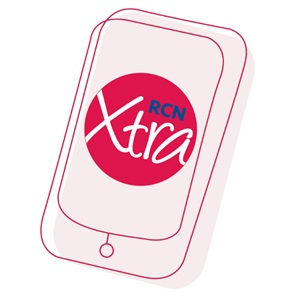There are plenty of ways to reduce your outgoings and increase your spendable income. Each student will choose their own way of budgeting, and set their own priorities, and no two will be the same.
However, there are certain steps that all students should take to ensure that they are not paying out too much for goods and services, or paying too much tax.
Council Tax
You are exempt from Council Tax if you are a full-time student living on campus or in accommodation shared with other students. You can obtain a Council Tax exemption certificate.
Remember that you have to submit a new Council Tax exemption certificate in every year that you continue as a full-time student.
Unfortunately, you are not eligible for Council Tax exemption if you are a part-time student. However, you may be eligible for a 25% reduction if you live alone, or in certain circumstances you can apply for Council Tax benefit if you have a low income.
Tax
Make sure you stay informed and that you do not overpay your taxes. How much Income Tax you pay in each tax year depends on: how much of your income is above your personal allowance and how much of this falls within each tax band. For further information go to the gov.uk website.
Check your payslips and if you are paying tax, you may be entitled to a refund. Visit the National Insurance pages for more information.
National Insurance Contributions (NICs)
You pay the same NICs whether or not you are a student. Your employer will deduct NICs from your pay if they are due. NICs will be due if you earn above a certain rate. For current rates the gov.uk website.
Many students will not have to pay NICs.
NICs are due on your pay for the week or month, so you will not get a refund if you stop working part way through the tax year.
Student bank accounts
It is very easy to be seduced by the freebies offered by banks at the start of the first term, but this is not always the best way to choose your student bank account.
But if it is not the free iPod that seduces you, what should impress you?
Apart from convenience, where banks really differ tends to be in the size of the interest-free overdraft they can offer you. As debt is a fairly inevitable part of student life, make sure you keep the cost of this debt to the minimum by opting for the biggest and longest interest free overdraft facility, and look at the interest rate after the ‘free’ period has finished.
Benefits, Tax Credits and Universal Credit
Certain categories of students can qualify for Tax Credit and Benefits whilst studying. To check if you may qualify for any additional support go to the 'Benefits' section of this guide.
Save on your spending
While shopping around for deals can seem time consuming, there are various money saving sites that can save you many hundreds of pounds on things like insurance, electricity, gym membership or eating out. Never buy any large purchase without first checking out whether you can reduce the cost by using an online voucher or deal.
New Government ‘Help to Save’ Scheme
‘Saving’ isn’t always a word associated with being a student, but for those who are able to work and also qualify for a relevant benefit whilst studying, there is a new government scheme that offers generous incentives to those who are in a position to put money away.
Whilst it is likely that only a small percentage of students will qualify, if your family are receiving any of the following benefits it may be worth exploring further.
- Working Tax Credit.
- Entitled to Working Tax Credit and receiving Child Tax Credit.
- Claiming Universal Credit and your household earned £569.22 or more from paid work in your last monthly assessment period.
If you get payments as a couple, you and your partner can apply for your own Help to Save accounts. You need to apply separately.
The Help to Save Account will top up every £1 saved by 50p – an effective 50% bonus on savings. Over a four-year period, the account will boost a maximum saving of £2,400 with a total bonus of £1,200.
The maximum that can be saved is £50 a month. The bonus is paid after two years of saving, but customers can continue the scheme for a further two years for another bonus payment if they wish.
The accounts, which will be administered by HMRC, will be available to working UK residents claiming working tax credits, child tax credits or universal credit.
HMRC says savers should be able to open an account online in around five minutes. Accounts are flexible, allowing customers to set up standing orders on a weekly, fortnightly or monthly basis. One-off payments can also be made online with a debit card.
Withdrawals can be made at any time, although this could reduce the level of bonus paid. For more information visit the gov.uk website.


 Whilst most of us will have left school with a pretty good grounding in
Whilst most of us will have left school with a pretty good grounding in 
 Whether it is through student loans, bank loans or overdrafts, debt in one form or another is unavoidable for many students. The important thing to remember is that debt doesn’t necessarily have to mean stress.
Whether it is through student loans, bank loans or overdrafts, debt in one form or another is unavoidable for many students. The important thing to remember is that debt doesn’t necessarily have to mean stress.




